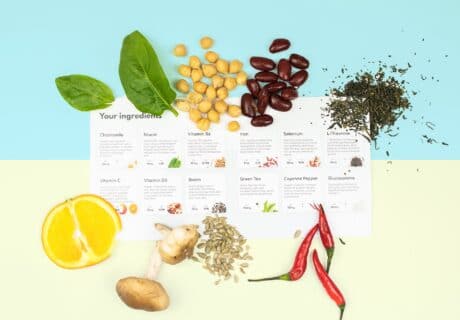Well known figures from across the natural and organic sector share their experiences of doing business in the EU in the new post-Brexit trading environment with Jim Manson
When we used to get an order from Europe, it was always ‘Yay, another order!’. Now it’s more like ‘Urgh, really?’. That seems sad. Not right. And the more we’ve looked at it, the more we’ve realized this isn’t a deal, it’s a separation.”
Those were the words of Kiran Tawadey, founder of organic tea specialist Hampstead Tea, being interviewed by Channel 4 News in early April in a report on how Britain’s SMEs are faring in the new post-Brexit trading environment.
By early spring, the mood in Britain’s business community was palpably different from the atmosphere of cautious optimism felt in the days that followed the signing of a Free Trade Agreement by the UK and EU on Christmas Eve.
It was clear the new trade deal wasn’t as ‘frictionless’ as advertised. Firms had been hit by an avalanche of paperwork as they grappled with multiple customs checks, port delays, complicated new labelling and certification requirements and variable VAT rates.
So, what has been the experience of natural and organic businesses in these first few months? Do companies expect the situation to start improving, or are we simply discovering the realities of being a ‘third country’? Is there still a ‘Brexit dividend’ to be obtained, and will new doors open for British firms in markets beyond the EU?
Here, senior figures from across the spectrum of the natural products industry give us their assessments of the situation.
The wholesaler:
Charlie Booth, Infinity Foods
“Effectively, we haven’t exported to the EU since January. It’s just been too difficult.
“It has definitely turned out to be harder than I thought, because a lot of the bureaucratic technical things I probably rather naively thought would be ironed out in trade talks, simply weren’t. All they ironed out was custom duties.
“The biggest single hurdle is processing organic orders using the EU TRACES system. You’re having to spend literally ten to 15 minutes per line of every order.
“One thing I really wasn’t expecting was the level of divergence between different EU markets. So, for example, country X insists on certificates of analysis being produced for every product, every time – while country Y doesn’t.
Although we have long-standing, loyal customers in Europe, we risk losing some of them. For example, we supply a retail chain in Lithuania, and they’ve told us that it’s just impossible dealing with the bureaucracy. And the reality is that they will have a whole bunch of German wholesalers queueing up to supply exactly what we do.
“I don’t think we are just experiencing teething problems. These are the rules. These have always been the rules for third countries. And this is what we signed up to.
“About half of our exports are outside of the EU. But in these markets we’ve generally got good networks with people who know what they’re doing in particular countries. That might be the way that we are heading with the EU.”
The export expert:
Keith Garden, Only Natural Products (owner of the Dr Stuart’s and Higher Living tea brands and a double Queen’s Award for Enterprise recipient)
“It was our thriving international business that delivered the 50% growth we achieved last year, and the majority of that is outside Europe. Nonetheless, the EU market is still an important one. And we’ve definitely felt the impacts since January.
“To be honest, we thought it would be easier processing organic orders than it has been. Overnight changes in paperwork resulted in a shipment to Germany coming back to us because paperwork requirements had changed in one day. We’ve also had products returned from Spain and Italy.
“There have been weeks where it’s taken up virtually everyone’s time. You’re not actually getting any normal work done!
“Organic creates specific challenges – dealing with TRACES and COIs. We had to do a lot of labelling ourselves, which of course is another added cost and delay. But the team here likes a challenge, and to overcome them. We’ve got some really good customers who we’ve dealt with for a long time – and we are constantly saying we will work this all through.
We got our first products successfully through at the end of February.
“Some of the extra costs probably will continue to be with us because the paperwork will be an on-going issue. But overall, I do see this as being a short-term problem.
The B2C retailer:
Kate Magic, Raw Living
“Last year was a good year for us – but the Brexit situation is not. And it isn’t as if we hadn’t been trying to prepare for it. For four years I was looking for information for businesses like ours, asking Government departments and other people what is going to happen – and nobody seemed to know, or could tell us.
“It’s so time-consuming. And it’s really costly, in terms of the time involved and costs of getting professional advice. In the end, it is just not viable.
“Information that is out there seems to be very complex and often apparently contradictory. It’s been almost a full-time job for three months. There’s also very little information for B2C businesses.
“A lot of the regulations that have been created are really unworkable for everyone other than the big players. For businesses ordering consignments worth hundreds of thousands of pounds, then doing the extra paperwork is probably not too problematic and ultimately worth it. But for companies like us, where an order might be something like 250g of sunflower seeds and a chocolate bar to France, it’s just pointless. There is no way we can trade like this.
“One of the things I am really horrified at is the whole situation regarding organic. Because, as you know, you now need a certificate of inspection for every single organic export that you do. They each cost between £30-50 and take two hours to do the paperwork. Given that most of our orders are at around the £100 mark, it can’t be justified.
“The upshot is that we have done no business in Europe this year. It’s a serious hit for us, because about 40% of our business is export.”
The supplements brand:
Philip Hampton, BetterYou
“The experience has been poor. We have had multiple issues, including significantly higher freight charges, delivery lead times doubling for our European customers and considerable demands for extra paperwork, including technical documents.
“There has been a lack of clarity around the documentation required to export goods with each country, and every customs office seemingly interpreting the rules in their own way.
“Exporting since the end of the transition period has been challenging. Costs increased, delivery delays are considerable and document requirements multiplied, with each country stipulating different conditions. Supplying product samples has also been a particular difficulty – for example, when transporting samples to France, delivery took six weeks and upon arrival, our customers were asked for up to €100 in VAT, duties, or other unspecified reasons.
“The reaction of our customers in the EU? Quite simply, disbelief has been the main reaction!
“The EU remains an essential focus for BetterYou, as it represents 50% of our export turnover. But the post-Brexit trading environment has proved problematic. We are investigating our ways of working and we are looking at alternative operation routes. This may be through storing our products within the EU or establishing a transit warehouse and fiscal representation to facilitate import. The direction is yet to be decided, but the current environment isn’t sustainable.
“A number of our customers have already made the decision to cease trading with us because it’s too complicated and costly, so it’s vital that we establish an alternative route to trade successfully within the EU.”
The organic food manufacturer:
Alex Smith, Alara Wholefoods
“We did a lot of work in preparation. But as soon as Brexit hit there were different realities. To be honest, it’s been a nightmare. EU business accounts for about 12% of our total sales as a company. And in January and February they were more or less non-existent.
“For quite a few of our EU customers the only way I can really persuade them to carry on buying from us is to say ‘Look, we recognize that you’ve got a huge amount of work to do to continue importing from us, so what we will do is reduce our prices to compensate you for the costs and the hassle of it’.
“Some ports are definitely easier to deal with than others. From our perspective the French ports simply aren’t able to deal with our organic imports. So we are shipping to Holland, where in effect they will do the customs clearance from the UK into the EU, and the shipments all go on from there into France.
“Part of the problem is there is a lot of resentment in Europe. Frankly, people are pissed off. It’s probably actually easier to export to other territories than the EU. Not least because they don’t have this simmering resentment.”
The trade association:
Graham Keen, HFMA
“The impacts for members have been challenging indeed. It’s fair to say that all the right noises are coming out of UK regulatory officials and they are trying very hard to help industry through this situation, but they cannot speak for either the EU or for other individual member states in terms of how this is being organized from their side. I don’t want to understate the challenges because this has been traumatic for some of our members.
“Some companies, particularly those that don’t have the added complications of having products of animal origin (POAO), are coping reasonably well; others are finding it particularly challenging. But where the problems have tended to manifest themselves in the biggest way relate to the movement of goods into the Republic of Ireland, mainly by virtue of the scale of business.
“There is a general consensus among our members that things are getting better – it’s still difficult, however. What will it be like in two months’ time or six months’ time? We don’t really know yet. But I do think it will get better.
“It is difficult to gauge the longer-term impacts at this stage. But there is clearly a massive opportunity in ‘new’ non-EU markets, so the key question is really the degree to which companies take a hit in their trading with EU countries compared to new business opportunities created.”
Interviews conducted mid- April 2021





